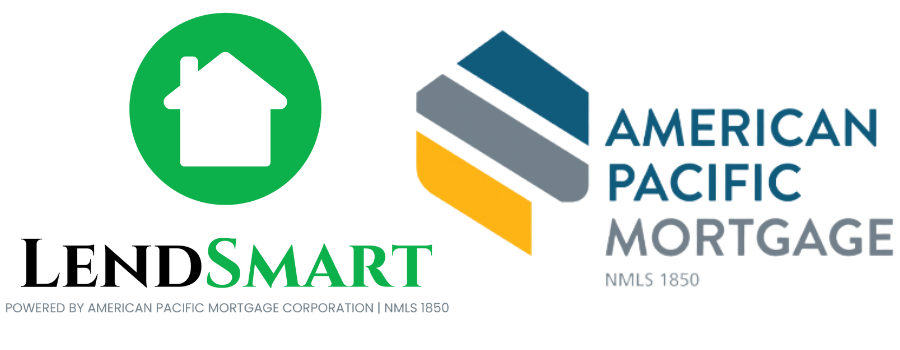When you buy or refinance a home, there are many important terms that come up. Many realtors will tell you that you should get pre-approved for a loan before submitting offers to available houses.
If you have been submitting offers and are constantly turned down for more qualified buyers, it is time to consider a conditional loan approval.
Conditional loan approval is often far more appealing than just a pre-approval, and many buyers with conditional loan approval will win out over those with pre-approval.
But, what is conditional mortgage approval? How is Mortgage Conditional Approval Different Than Approval?
In this post, we will explain the ins and outs of conditional approval and why it is important to have.
Read on to find out more.
Conditional Approval
Conditional approval is the stage between submitting your mortgage to an underwriter and final approval. To issue a conditional approval, the lender must assess your assets, income, and credit report. After the conditional underwriter examines your financial information, they may issue a mortgage conditional approval if they are mostly satisfied with your file but still need a couple of things resolved.
First, you want to obtain pre-approval, which is where the lender determines how much they are willing to lend you. Once you have pre-approval, then you can start house hunting. Many people will make offers with only pre-approval. However, you can also complete a loan application for a specific property and submit the loan for processing. The mortgage underwriter analyzes all of your financial information to determine if you should be approved for the loan. If you meet the qualifications, the loan will most likely be approved with conditions.
While a lot of home buyers submit offers with only pre-approval, this is not as sound of a strategy as getting a conditionally approved loan. In many cases, the loan officers do not even review your financial documents before issuing pre-approval. Because conditional approval involves a more detailed analysis, it carries more weight than pre-approval for sellers.
What Does Conditionally Approved Mean?
A conditionally approved loan is not the same as being fully approved for a loan, but it is closer than pre-approval. Conditional approval means that the mortgage underwriter is mostly satisfied with your entire loan application, but still sees something that needs to be resolved. These issues are referred to as “conditions”. The conditional approval signifies that if you meet the remaining conditions, the loan will be approved. Most loan applications receive the “approve with conditions” label because the lender needs some clarification or additional information to approve the loan. Conditionally approved mortgages help protect the lender because they ensure the loan is sound and free of unnecessary risks.
Once you have found the house you are interested in, then you can apply for loan approval. You provide the underwriter with all of the necessary documentation to verify your loan, such as:
- Tax documents
- Utility bills (especially if you have minimal credit)
- Pay stubs
- Bank statements
- Income verification
- Asset statement
- Debt obligations/credit
The underwriter must determine if you meet the guidelines for that loan. If you need a few things taken care of before full approval, then you will get conditional approval. This is the most common outcome of a loan application, as the lenders want to be very risk-averse when offering loans for mortgages. Conditional approval would occur between mortgage underwriting and final approval/closing.
Conditions for a Conditionally Approved Loan
When underwriters analyze loan approval, there are many important factors. Often, there are common reasons or “conditions” that underwriters will specify. The conditions can be any number of things, but there are some repeated themes in conditionally approved loans.Some of the most common conditions identified by underwriters include:
- Incomplete or missing documents needed for the loan funding process
- A copy of your homeowner’s insurance policy
- Employment/ income verification
- Proof of mortgage insurance
- Explanation of a recent deposit or withdrawal
Of course, the conditions above are only some of the most likely. Your underwriter may have other conditions that we did not mention. The process is different for each individual borrower based on their circumstances.
Benefits of a Mortgage Loan Approved with Conditions
You can only obtain a conditional mortgage loan after you’ve found a specific home. However, you should not wait until after your offer to apply for a mortgage loan with conditions. There are many important reasons to get a mortgage loan approved with conditions before making an offer on a home including:
- A mortgage loan approved with conditions is more attractive to sellers and can set you apart from other buyers that only have pre-approval.
- If you stick with only pre-approval, you are likely to lose to other buyers, especially for the most desirable properties.
- Conditional loan approval can greatly reduce the closing time since most of the loan process is already done.
- Eliminate many of the unknowns and uncertainties in the home buying process with your conditional loan approval.
- Builders for new construction often require conditional loan approval before beginning the process. Most likely, you cannot start building a new home without conditional loan approval.
How Long to Close after Conditional Approval?
Once you receive your conditional mortgage approval, you are quite close to an accepted loan and closing. However, you are not quite there. Many people want to know just how long it will take to close after receiving conditional approval.
Unfortunately, every situation is different and the time until closing will vary based on the conditions you must meet and your lender’s timeline. The time it takes to go from conditionally loan approval to final approval can be a matter of days or weeks depending on your situation. However, there are some factors that will influence your time until closing after conditional approval.
For one, you should contact your lender to figure out their timeline. Some lenders have in-house underwriters that have a one day turnaround time, while others may take up to 72 hours. The insurance portion of the process should be fairly quick as long as your insurance agent sends the insurance binder to the lender on time. Additionally, you need to meet the conditions specified in your conditional loan. The quicker you are able to provide the documentation to mee the conditions, the faster you can get to closing.
Once you submit the conditions back to the underwriter, they will review them for final approval. As long as you adequately met all of the conditions, you will receive final approval and clearance to close. To keep your closing time down, you should:
- Respond to all communications as quickly as possible.
- Submit the information for the conditions immediately. Some conditions may not be in your control (like an appraisal of the seller’s home), but do your part to complete the conditions that pertain to you as soon as possible.
- Make sure you submit everything that is asked to meet the conditions. Any missing documentation or information will delay the process.
- Ensure that your insurance agent sends your information to the lender.
Overall, your main job while your loan is in underwriting is to move as quickly as you can on any questions, document requests, or other things that are asked of you. Even if you do not understand why the lender needs the documentation, getting it as soon as possible is the key to speeding up the process. The conditions are not personal, and they are the job of the underwriter. Do your part to handle the requests swiftly and the process will be much faster and smoother.
Steps After Conditional Approval
When your loan is conditionally approved, you met most of the requirements for the loan. However, you are not in the clear yet. To obtain mortgage approval, you need to mee the specified conditions.
First, the loan coordinator will contact you to discuss the conditional approval and conditions you must meet. Then, you must submit the information to meet the conditions. Once the loan coordinator gets those conditions, they will send the file back to the underwriter for final review.
If you adequately met all conditions from the conditional loan, then the underwriter will approve your loan. Keep in mind that failing to satisfy the conditions will delay the process. However, if you receive the final approval then you will be clear to close. This means that you do not have any more conditions to satisfy, however, the lender will often take a few more steps.
After getting the clear to close, the lender will most likely re-examine your credit and verify your employment status again. Only then will they fully approve your loan application.
Then, the lender will send you the final disclosures. You must acknowledge and sign the final disclosures and soon as possible to begin the 3-day window for scheduling closing.
What Happens After the Underwriter Approves the Loan?
Once you satisfy all of the conditions and the lender is sure nothing has changed with your finances, then you will receive loan approval. With the final approval, you will get the clear to close that signifies all conditions are met. While final approval is a big deal and very exciting, it is not the last step.
Final approval is the “okay” that the conditions on your conditionally approved loan were met. The final approval is verification that you can sign the loan documents. However, there is still more you need to do. You are not fully in the clear. Make sure you do not change anything that could cause the lender to revoke your final approval. During the period between loan approval and actually getting the keys, do not make any drastic financial changes. Only spend money on basics and essentials, do not buy a new car, sign up for new credit card accounts, or move around any large sums of money.
You still will have a few more things to do before you can officially get the keys to your new home. After the underwriter signs off on the loan, they will conduct a final review to double-check that all of your documentation is correct. The lender will also do a check on your credit and employment status one more time.
You should receive your closing documents, which you will need to review and sign. On the closing day, you bring your money and sign the final documents. To close on your new home, you will need to bring a photo identification and a personal or approved bank check to cover the closing costs and down payment. If you are refinancing or purchasing a home, there will be a lot to sign on the closing day.
After completing the closing day, you will wait for the funding of the mortgage. Once all documentation is complete, the lender will disperse the funds to the seller. At closing, you will receive your first payment statement which you will use to pay your first and maybe second loan payment. Lastly, the final servicer will explain where to make future payments and set up autopay. At this time, the final step is complete and you can enjoy your new or refinanced home.
Get Conditional Underwriting Approval Today
All in all, the home buying and refinancing process has a lot of steps, documents, and variables. Knowing the difference between a conditionally approved loan, pre-approval, and final approval will greatly help you along the way.
If you are struggling to beat out more “qualified” buyers when submitting offers, it may be time to consider including a conditionally approved loan rather than just pre-approval. Even with all of the detailed information from this guide, you may still not know exactly where to start or how to handle conditionally approved loans.
Luckily, the knowledgeable team at Lend Smart Mortgage is here to help you. As America’s trusted mortgage lender, we can help you search for and purchase a real estate property from start to finish. To learn more about how we can help, contact us today!
Contact us at (651) 631-4919 or schedule a call and let our mortgage experts help you with your home loan.
© 2020 Lend Smart Mortgage, LLC. NMLS4474 AZ BK#0908384. All Rights Reserved.
Developed and designed by https://blairallenagency.com



